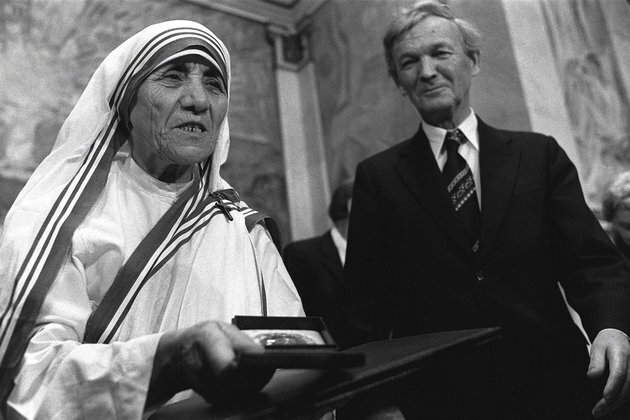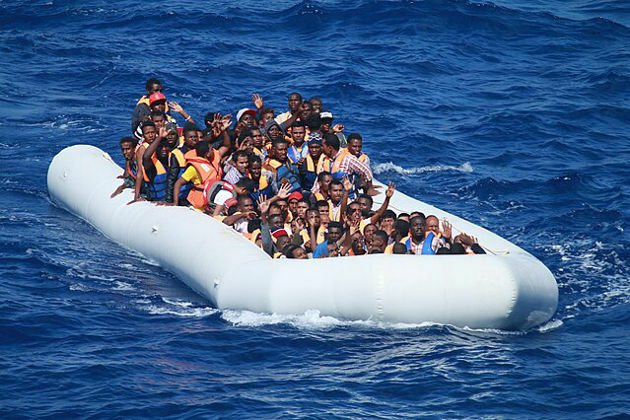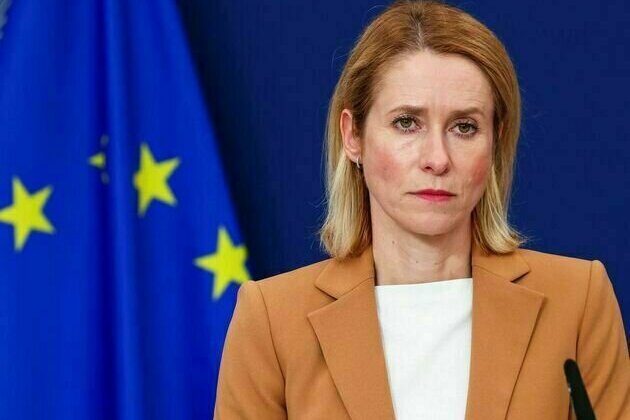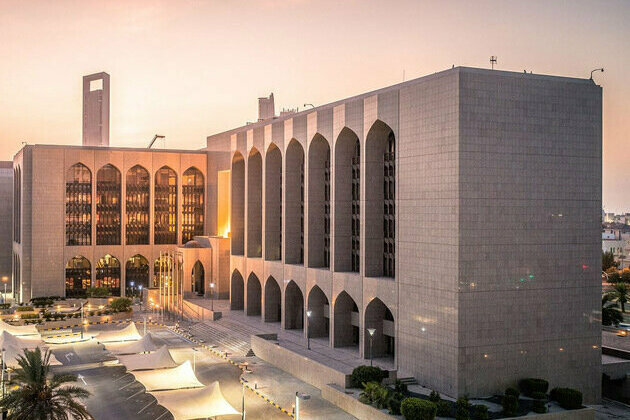The Nobel Peace Prize often reveals how contentious peace can be
The Conversation
20 Sep 2023, 02:08 GMT+10

Leading up to the announcement of the Nobel Peace Prize, there is widespread speculation about who will win.
There are 351 nominees for the 2023 prize, 259 individuals and 92 organizations. Although the list is confidential, there is widespread speculation about who's on it, including favourites and long shots, repeat and first-time nominees.
This global moment of interest in peace is important, but it doesn't tell us much other than that peace is elusive.
Looking at the longer history of the Nobel Peace Prize tells us that peace takes many forms, including ending armed conflicts, resisting racial discrimination, standing up for the oppressed and caring for the vulnerable. Peace can also be political and controversial.
Taking a stand against war
The early recipients were usually prominent men from Europe and the United States, and their peace work took the form of preventing or ending wars.
The first Nobel Peace Prize was jointly awarded in 1901 to Frederic Passy, a French economist and politician who founded the French Peace Society and organized a peace congress in 1878. American president Theodore Roosevelt received the 1906 prize for "his role in bringing to an end the bloody war recently waged between two of the world's great powers, Japan and Russia."
Over time, the list of laureates has expanded to include women and non-elites from all over the world.
Betty Williams and Mairead Corrigan did clerical work in Belfast and became peace activists after the death of three children in an IRA-related incident.
Corrigan was aunt to the children; Williams witnessed their deaths. They shared the 1976 prize for launching a peace movement to end sectarian violence in Northern Ireland.
Protecting people, defending human rights
Humanitarian work that supports people who are in danger or vulnerable has informed the selection of peace laureates from the start of the Nobel Peace Prize.
Henri Dunant, a Swiss businessman who had established the International Committee of the Red Cross in 1863 to assist wounded soldiers, shared the 1901 prize with Passy. Dunant was selected because of "his humanitarian efforts to help wounded soldiers."
Fridtjof Nansen, the League of Nations High Commissioner for Refugees, received the award in 1922 for his work to repatriate prisoners of war after the First World War and for creating the Nansen passport for refugees. Mother Teresa won in 1979 for caring for people who were terminally ill, abandoned and destitute.
In 1992, Rigoberta Menchú Tum of Guatemala was recognized for her advocacy of Indigenous rights, social justice and "ethno-cultural reconciliation."
Human rights activists have also figured prominently as laureates since the 1960s, starting with Martin Luther King Jr. in 1964 for "his non-violent struggle for civil rights for the Afro-American population."
Other human rights laureates include Rene Cassin (1968), a drafter of the Universal Declaration of Human Rights, Aung San Suu Kyi (1991) for her efforts to establish democracy and human rights in Myanmar, and Maria Ressa and Dmitry Muratov (2021) for their defence of freedom of expression.
International co-operation
The prize has also recognized efforts to create internationalist attitudes and improve standards of living as essential contributions to establishing peace among nations and ensuring people live in security and with dignity.
American peace activist and social reformer Jane Addams received the 1931 prize, at the height of the Great Depression, for her efforts to "rekindle the spirit of peace" in the United States and "the whole of mankind."
U.S. President Barack Obama was selected in 2009 for "his extraordinary efforts to strengthen international diplomacy and co-operation between people," while Muhammad Yunus, a South Asian economist, won in 2006 for setting up a bank to provide small long-term loans to people living in poverty so that they could become financially independent.
Politicizing peace
But peace can become political when its advocates oppose or try to reform governments and societies that are pursuing hostile foreign relations or promote and perpetuate injustice and oppression at home.
Between the two world wars, the Nobel Peace Prize was awarded to politicians, diplomats and officials who made substantial efforts to avoid future conflict, even though they were ultimately unsuccessful.
That included those who supported the League of Nations or negotiated agreements, like the 1925 Locarno Treaties, that were supposed to guarantee the borders between Germany and France and Germany and Belgium, and the Kellogg-Briand Pact of 1928 renouncing war as an instrument of state policy.
The 1964 prize to King, four years before his assassination, was a timely intervention in the American civil rights movement. The 1983 award to Lech Walesa, leader of the trade union Solidarity in Poland, made an anti-communism statement.
Controversial laureates
The selection of laureates can be controversial, and several have been criticized for acts and beliefs that are inconsistent with peace.
There was an outcry when Henry Kissinger, the U.S. secretary of state, received the prize for his part in negotiating a ceasefire in Vietnam.
Mother Teresa was also criticized for denying people in her care pain relief.
As Myanmar's leader, Suu Kyi was denounced internationally for denying the genocide of Rohingya Muslims. The Nobel Committee explained that her prize could not be withdrawn after the fact.
Peace can threaten the powerful
The pursuit of peace itself provokes opposition because it demands change.
Abolishing war limits the way governments promote national security. Authority and privilege are challenged in the face of calls to eliminate racism, empower Indigenous Peoples, respect freedom of expression and achieve socio-economic equality.
Even though peace might seem unobjectionable, the history of peace is a story of resistance, contesting the status quo and precarious advances.
Author: Francine McKenzie - Professor of History, Western University 
 Share
Share
 Tweet
Tweet
 Share
Share
 Flip
Flip
 Email
Email
Watch latest videos
Subscribe and Follow
Get a daily dose of Iraq Sun news through our daily email, its complimentary and keeps you fully up to date with world and business news as well.
News RELEASES
Publish news of your business, community or sports group, personnel appointments, major event and more by submitting a news release to Iraq Sun.
More InformationInternational
SectionGaza War sucking life out of an Israeli generation
In the past month alone, 23 Israeli soldiers have been killed in Gaza—three more than the number of remaining living hostages held...
Faulty IT system at heart of UK Post Office scandal, says report
LONDON, U.K.: At least 13 people are believed to have taken their own lives as a result of the U.K.'s Post Office scandal, in which...
Travelers can now keep shoes on at TSA checkpoints
WASHINGTON, D.C.: Travelers at U.S. airports will no longer need to remove their shoes during security screenings, Department of Homeland...
Rubio impersonator used AI to reach officials via Signal: cable
WASHINGTON, D.C.: An elaborate impersonation scheme involving artificial intelligence targeted senior U.S. and foreign officials in...
Warsaw responds to migration pressure with new border controls
SLUBICE, Poland: Poland reinstated border controls with Germany and Lithuania on July 7, following Germany's earlier reintroduction...
Deadly July 4 flash floods renew alarm over NWS staffing shortages
WASHINGTON, D.C.: After months of warnings from former federal officials and weather experts, the deadly flash floods that struck the...
Arab
SectionGaza War sucking life out of an Israeli generation
In the past month alone, 23 Israeli soldiers have been killed in Gaza—three more than the number of remaining living hostages held...
Saudi Aramco plans asset sales to raise billions, say sources
DUBAI, U.A.E.: Saudi Aramco is exploring asset sales as part of a broader push to unlock capital, with gas-fired power plants among...
EU foreign ministers to discuss situation in Middle East Monday
BRUSSELS, 11th July, 2025 (WAM) -- EU Ministers of Foreign Affairs will hold a meeting next Monday in Brussels, to be chaired by Kaja...
UAE deepens innovation ties with India through high-impact MoU at Mumbai start-up event
Mumbai (Maharashtra) [India], July 11 (ANI): The UAE-India CEPA Council (UICC), in collaboration with the Embassy of the United Arab...
CBUAE revokes licence of Al Khazna Insurance Company
ABU DHABI, 11th July, 2025 (WAM) -- The Central Bank of the UAE (CBUAE) has revoked the licence of Al Khazna Insurance Company P.S.C...
Businesses globally are hesitating to take significant investment decisions due to geopolitical tensions and trade negotiation setbacks: Report
New Delhi [India], July 11 (ANI): Businesses across the world are hesitating to make significant investment decisions because of rising...












